With or without a cable, when it says ‘Porta Pro’ on the outside, you can be sure of the warm, bass-heavy sound that has made these lightweight Koss on-ear headphones a favourite mobile companion for many music lovers for 40 years. The absence of a cable is perhaps the most logical and desirable evolutionary step in this long tradition, especially as the battery life is very contemporary and we could not detect any difference in sound quality compared to the wired version.
- Classic round, bass-heavy sound
- Pleasant wearing comfort
- Charming design
- Bluetooth connection interrupted when charging
- Audio output latency (sound/video synchronisation) noticeable
The KOSS Porta Pro, a classic headphone since its introduction in 1984, is now available in a new wireless version. The KOSS Porta Pro Wireless 2.0 combines legendary sound with modern features such as Bluetooth 5.2, long battery life and intuitive controls. Find out how well it works here.
Table of contents
- Introduction: The Koss Porta Pro Wireless – Evolution of a classic
- Bluetooth: Connectivity, codecs and latency
- Handling: Operation, battery life and comfort
- Sound quality: The Porta Pro’s characteristic sound
- Telephoning: Microphone quality and use for frequent callers
- Conclusion: Are the Koss Porta Pro Wireless the right choice?
You’ve come a long way
If you were looking for a lightweight and affordable sound upgrade for your Walkman or even Discman in the second half of the 1980s, the Koss Porta Pro was almost inevitable. Compared to the headphones that many manufacturers shipped with their machines, they were a revelation in terms of sound and mechanics. Not only did they fit the ears much better than the often rudimentary factory headphones, thanks to the adjustable temple pads and flexible ball-and-socket speaker units, but their wide frequency response allowed them to penetrate areas of sound that had previously often remained hidden. The Porta Pro quickly became an insider’s tip among DJs and producers.
A few years ago, Koss revived the Porta Pro Classic (see review), and has continued to expand the Porta series with new colours and features. Now, the company is figuratively cutting the cord on the Generation X classic, replacing it with a modern Bluetooth radio module. However, the wireless version is not completely wireless (fortunately), as Koss includes a 1.2 metre USB-C to mini-jack cable with the headphones, which allows the Porta Pro to be used without a wireless connection – very good. The term ‘Analogue Audio Pass Through’, coined by Koss’ marketing department, seems a bit exaggerated for such a technically simple adapter.
Bluetooth wireless connection
The Bluetooth chip used here uses the still up-to-date version 5.2, which, according to the specification, includes the new high-resolution audio-capable LC3 codec (Low Complexity Communications Codec). However, this requires at least Android version 14 and hardware that also supports this codec. In our test setup with a Samsung S9, only SBC and AAC were used in terms of codec technology. LDAC and aptX are still missing from the feature list. An optional gamer mode with reduced latency, as found in many newer in-ear headphones, has also been omitted, so the rather high latency in the headphones’ audio output is clearly noticeable in applications that require a high degree of audio/video synchronisation, such as games and videos.
Handling and usage
After a straightforward pairing process, the status LED on the underside of the right earpiece flashes a cheerful blue to indicate that the headphones are connected to a Bluetooth player. Unfortunately, the Bluetooth connection is disabled when the charging cable is plugged in, so when the battery is empty you have to choose between charging and continuing to listen via a USB-to-mini-jack cable. Fortunately, the battery lasts more than twenty hours (depending on the volume), which we were able to confirm in our tests and which is more than enough for a whole day.
Visually and mechanically, this is the same tried and tested design that has remained unchanged for forty years: under the headband, which slides into each other to adjust to the size of the head, there are temple pads on either side with integrated ‘light’ and ‘firm’ sliders that can be used to release the locking mechanism of the speaker cups. This allows you to change the fit from resting on the ear and temple to resting on the ear only. At the end of the metal clip, there is a small hook and eye (some users will never notice this) that connect the ends and allow the handset to be stored as a handy ring in the round pocket provided.
Although the Porta Pro Wireless adds 20 grams to its total weight of 80 grams, thanks to the built-in battery and Bluetooth electronics, it is still light as a feather, even when worn for long periods. From today’s perspective, the design – which was cutting edge 40 years ago – has an extremely charming, technical 80s retro feel that is still pleasantly playful. The modern controls, consisting of three buttons (on/off, volume +/- and track forward/back, answer call) are discreetly mounted on the back of the right earpiece, where they are easy to use after a little tactile familiarisation of the fingers.
Sound quality: the characteristic sound of the Porta Pro
Although the Koss Porta Pro was mainly found in hi-fi departments when it was first released, its frequency response was and is far from the ideal of linear reproduction: from 40 Hz, the frequency response rises sharply to reach a peak at 100 Hz, from where it falls gently to 2 kHz; this is the reason for the voluminous bass reproduction. Then comes the second characteristic sonic feature of the Porta Pro: a 10-decibel dip at 4 kHz. This is an area that contains a lot of information, but is often kept in check by sound engineers because it is neither a treble nor a mid-range, and the number of instruments playing there is correspondingly large – ‘too much action’ there quickly comes across as exhausting and nervous. This is where the Porta Pro’s relaxed approach comes in, taking away a bit of agility, but proving to be quite pleasant when listening for long periods of time and, above all, at high volumes. In a direct comparison between the wired and Bluetooth versions, we could not detect any visible or audible differences.
Technical refinements such as noise cancelling or audio pass-through are not available here, because with on-ears you inevitably remain in acoustic contact with your surroundings. Of course, the wireless version was also designed with today’s mobile phone users in mind, so the headphones have a built-in microphone. This allows you to make two-way phone calls in good quality, with the sound that the Porta Pro user hears from the other party being slightly better than that received by the other party. The on-ear principle is also a pleasant way to make phone calls, as your own voice remains audible in the room and you don’t feel like you’re talking into a void as much as you would with highly-insulating over-ear or in-ear headphones.
The Verdict
The wireless version of the Koss Porta Pro brings it right up to date, and the Bluetooth connection does nothing to detract from the relaxed and powerful bass character of this classic. In fact, the airy mobile application has been in the DNA of the headphones from the very beginning (back in the days of the Walkman), so the final wireless application seems only logical and right. The noticeable latency in the audio/video synchronisation is a minor drawback in an otherwise successful implementation, which also includes commendable battery life. The extra forty or so euros for the wireless version over the wired one is well worth it. After hours of listening, it is clear that the Porta Pro is as popular as ever, even forty years after its debut. There’s no greater compliment to be paid to the designers of the original.
Technical specifications
- Ear couplingOn-ear
- Typeclosed
- Transducer principledynamic
- Frequency response (headphones)15 - 25.000 Hz
- Impedance60 ohms
- Sound pressure level (SPL)101 dB
- Weight without cable80 g
What's in the box
- USB to mini jack cable
- USB-C charger cable
- Carrying case
Special features
- BT version: 5.2
- BT codecs: SBC, AAC, LC3




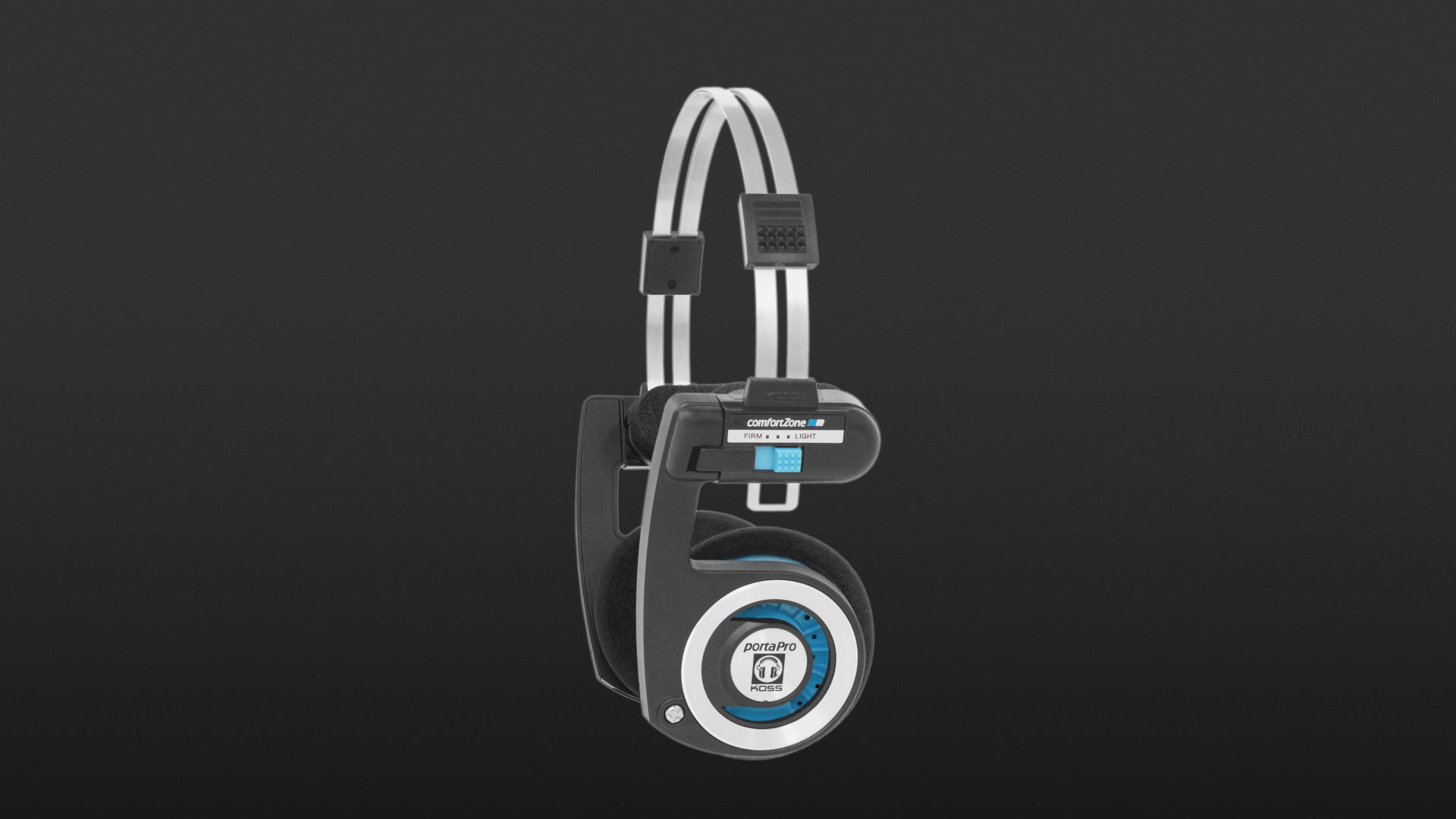


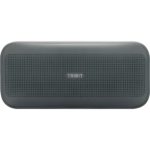

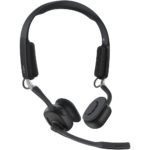

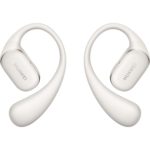



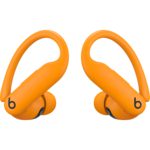

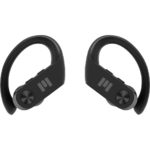

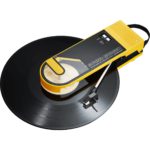

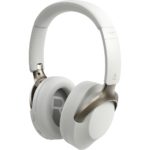



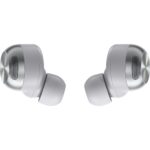

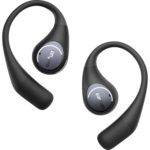


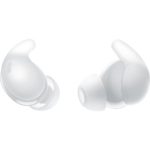
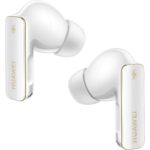

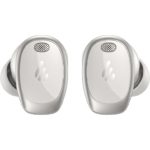

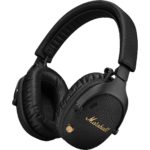

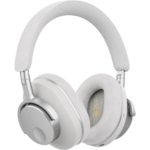





Koss-porta-pro-wireless-2-0 are open.
“Its lightweight, open-air cushions for hear-through sound keep listeners aware of their surroundings while delivering exceptional sound performance.”